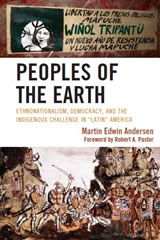Egypt after all is not a major producer of oil. Its production of 662,000 barrels a day accounts for just 0.8 percent of total world production, and most of it is consumed domestically. What has got the markets worried is that Egypt also controls the Suez Canal, whose very name is evocative of world trade and the potential for disruption. In the 1956 crisis, about 10 percent of global oil production was removed and it took more than six months to get the canal back to normal and production flowing freely.
These days the Suez Canal is much less important. About a million barrels of oil a day goes through it. Another 1.1 million barrels crosses Egypt through the Sumed pipeline (the Suez-Mediterranean pipeline running from the Gulf of Suez to the Mediterranean Sea). So even if the Suez Canal were to be closed, the impact would be much smaller. In 1956, Suez alone accounted for 8.8 percent of world oil flows, but today it is only 1.1 percent, and less than 2.5 percent of global oil if Sumed flows are included.
However, even a marginal disruption of oil supplies could have a much bigger impact than the actual shortfall. This is especially the case today when economic recovery has prompted a commodity price boom affecting goods from basic food grains to sugar and cotton and on to copper, palladium and tin and indeed oil.
The International Energy Agency has raised its estimate for oil usage this year four times in as many months and is now forecasting 89 million barrels a day in 2011, rising to 93.5 million barrels a day by 2015. To give a sense of history, in 2001, global oil use was 76 million barrels a day. The good news is that inventories are 61 days of forward demand, or 10 days more than during the oil price spike in 2008. In addition, the world has about 5 million barrels a day of spare oil production capacity. That's probably why U.S. crude oil futures fell as Brent rose, creating a record $18 Brent-Nymex price gap.
Unrest in Egypt raises questions beyond the country, with uncomfortable implications for the U.S. and the West in general, and for Israel and Middle East peace in particular. Indeed, protests have already flared up in a number of countries.
Lebanon, which produces no oil, but is a touchstone for the prosperity and stability of the region — not least because it has borders with Israel and Syria and has one of the few remaining substantial, though dwindling, Christian communities in the Middle East — again experienced street violence, the toppling of its government and replacement with a Hezbollah-dominated coalition.
Tunisia's long-term president Zine El Abidine Ben Ali proved to be of softer stuff than Egypt's Mubarak when he quickly fled his country at the first sign of trouble and demonstrations on the streets. Violence has also affected Yemen, another tiny oil producer (258,000 barrels a day or 0.3 percent of world production) which like Egypt is an ally of the U.S. and also occupies a key strategic position with a potential choke point for oil transit at the Strait of Bab al Mandab, where the Red Sea meets the Gulf of Aden.
Last month also saw a sharp rise in bombings and deaths in Iraq, which is a considerable oil producer (2.4 million barrels a day or 2.7 percent of world production), as well as being an ally of Washington. There were also small protests in Jordan, mild but enough for King Abdullah prudently to change his prime minister and government. Syria, Bahrain and Algeria also experienced protests against their authoritarian rulers.
Iran's mercurial President Mahmoud Ahmadinejad, quickly forgetting protests against his own rule, claimed that the demonstrations in Cairo and other Arab cities are a defining revolutionary struggle against "despotic" secular Westernized "puppet" rulers and are inspired by the overthrow of the shah of Iran (who was toppled in 1979).
But then Iran, which is a major oil producer, with 4.1 million barrels a day, got its own rude awakening, with demonstrators on the streets this week having the temerity to call for its own supreme ruler to step down. Iran's security forces will have little compunction in putting down the protests, brutally, if necessary, but it is a reminder to authoritarian rulers that people everywhere long for freedom of the spirit as well as freedom from economic want.
Egypt has a central and pivotal position in the geopolitics and economics of the whole Middle East, not least because of its long and ancient civilization and role as the largest of the Arab states and the center of Arab nationalism. Under Mubarak it enjoyed two other features that will now come under threat with the president's departure and which make the melting pot potentially more explosive.
One is Egypt's peace treaty with Israel, signed by Mubarak's assassinated predecessor Anwar Sadat but which Mubarak has faithfully adhered to (allowing Israel free rein to extend settlements in Jerusalem and occupied territories without fear of war with Egypt). The other has been firm friendship with Washington, which has seen more than $70 billion in American aid pumped into Egypt to help create Mubarak's vision of a modern state.
Steven Cook, senior fellow at the influential Council on Foreign Relations, wrote last week that "Mubarak was long Washington's man in Cairo: he kept open the Suez Canal, repressed the Islamists, and maintained peace with Israel."
The self-styled "leader of the free world" has other friends in the region with fewer democratic credentials than Mubarak. Saudi Arabia, Yemen, Ethiopia, Jordan and Bahrain spring quickly to mind. Some of these may not be in imminent danger of falling, but even a Saudi king (oil production 10.2 million barrels a day or 11.7 percent of global production) might have to sing a different tune to the U.S. and Israel if the Muslim Brotherhood get their feet under the ruling table in Cairo.






